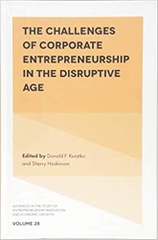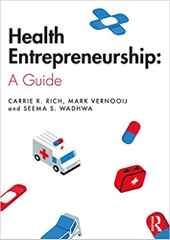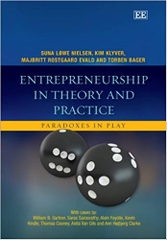-
-
-
Tổng tiền thanh toán:
-
-
Thông tin
-
Tìm sách theo yêu cầu
Insights—like Darwin’s understanding of the way evolution actually works, and Watson and Crick’s breakthrough discoveries about the structure of DNA—can change the world. We also need insights into the everyday things that frustrate and confuse us so that we can more effectively solve problems and get things done. Yet we know very little about when, why, or how insights are formed—or what blocks them. In Seeing What Others Don’t, renowned cognitive psychologist Gary Klein unravels the mystery.
Klein is a keen observer of people in their natural settings—scientists, businesspeople, firefighters, police officers, soldiers, family members, friends, himself—and uses a marvelous variety of stories to illuminate his research into what insights are and how they happen. What, for example, enabled Harry Markopolos to put the finger on Bernie Madoff? How did Dr. Michael Gottlieb make the connections between different patients that allowed him to publish the first announcement of the AIDS epidemic? What did Admiral Yamamoto see (and what did the Americans miss) in a 1940 British attack on the Italian fleet that enabled him to develop the strategy of attack at Pearl Harbor? How did a “smokejumper” see that setting another fire would save his life, while those who ignored his insight perished? How did Martin Chalfie come up with a million-dollar idea (and a Nobel Prize) for a natural flashlight that enabled researchers to look inside living organisms to watch biological processes in action?
Klein also dissects impediments to insight, such as when organizations claim to value employee creativity and to encourage breakthroughs but in reality block disruptive ideas and prioritize avoidance of mistakes. Or when information technology systems are “dumb by design” and block potential discoveries.
Both scientifically sophisticated and fun to read, Seeing What Others Don’t shows that insight is not just a “eureka!” moment but a whole new way of understanding.
- Link: http://www.amazon.com/Seeing-What-Others-Dont-Remarkable/dp/1610392515
Klein is a keen observer of people in their natural settings—scientists, businesspeople, firefighters, police officers, soldiers, family members, friends, himself—and uses a marvelous variety of stories to illuminate his research into what insights are and how they happen. What, for example, enabled Harry Markopolos to put the finger on Bernie Madoff? How did Dr. Michael Gottlieb make the connections between different patients that allowed him to publish the first announcement of the AIDS epidemic? What did Admiral Yamamoto see (and what did the Americans miss) in a 1940 British attack on the Italian fleet that enabled him to develop the strategy of attack at Pearl Harbor? How did a “smokejumper” see that setting another fire would save his life, while those who ignored his insight perished? How did Martin Chalfie come up with a million-dollar idea (and a Nobel Prize) for a natural flashlight that enabled researchers to look inside living organisms to watch biological processes in action?
Klein also dissects impediments to insight, such as when organizations claim to value employee creativity and to encourage breakthroughs but in reality block disruptive ideas and prioritize avoidance of mistakes. Or when information technology systems are “dumb by design” and block potential discoveries.
Both scientifically sophisticated and fun to read, Seeing What Others Don’t shows that insight is not just a “eureka!” moment but a whole new way of understanding.
Product Details
- Hardcover: 304 pages
- Publisher: PublicAffairs (June 25, 2013)
- Language: English
- ISBN-10: 1610392515
- ISBN-13: 978-1610392518
- Product Dimensions: 9.3 x 6.4 x 1.3 inches
- Shipping Weight: 1 pounds (View shipping rates and policies)
- Average Customer Review: 3.9 out of 5 stars See all reviews (36 customer reviews)
- Amazon Best Sellers Rank: #26,214 in Books (See Top 100 in Books)
- #19 in Books > Business & Money > Management & Leadership > Teams
- #28 in Books > Medical Books > Psychology > Applied Psychology
- #45 in Books > Health, Fitness & Dieting > Psychology & Counseling > Creativity & Genius
Editorial Reviews
Review
Kirkus Reviews
"Intriguing findings that should play a transformative role, not only in the field of psychology, but also in corporate boardrooms."
Library Journal
“A valuable resource for business professionals to return to over again.”
Strategy & Leadership
“Written in a breezy yet informative conversational style, Seeing What Others Don’t is a good read and helps to stimulate our own thinking about how insights occur.”
Library Journal
“A valuable resource for business professionals to return to over again.”
Strategy & Leadership
“Written in a breezy yet informative conversational style, Seeing What Others Don’t is a good read and helps to stimulate our own thinking about how insights occur.”
About the Author
Gary Klein, PhD, a senior scientist at MacroCognition LLC, was instrumental in founding the field of naturalistic decision making. Dr. Klein received his PhD in experimental psychology from the University of Pittsburgh in 1969. He spent the first phase of his career in academia and the second phase working for the government as a research psychologist for the U.S. Air Force. The third phase, in private industry, started in 1978 when he founded Klein Associates, a research and development company that had grown to thirty-seven employees by the time he sold it in 2005. He is the author of Sources of Power: How People Make Decisions; The Power of Intuition; Working Minds: A Practitioner’s Guide to Cognitive Task Analysis (with Beth Crandall and Robert Hoffman); and Streetlights and Shadows: Searching for the Keys to Adaptive Decision Making. Dr. Klein lives in Yellow Springs, Ohio.
Most Helpful Customer Reviews
Format: Hardcover
Comment Was this review helpful to you? YesNoGary Klein is a giant in the research field relating to how people actually think and make decisions in natural settings. In this book, he describes the value of gaining insight with reducing errors as two ways to increase individual and organizational performance. Both are needed, but reducing errors only gets us so far. There is much more to be gained by a dedicated focus in increasing insight. The book is organized in 3 sections: How insights are triggered, the things that interfere with insights, and how we can foster insight in self, others and organizations. Throughout there are interesting, well written stories to illustrate the concepts. As always, Klein includes a complete reference section. Since I have read all of Klein's books, I find this one is an excellent deeper dive into Streetlights and Shadows - but you can read this book without having read his other work and you won't be lost. Seeing What Others Don't is great for individuals interested in improving the quality of their own thinking, for leaders in organizations, and it would be a great supplement for an MBA level course of study.
44 of 48 people found the following review helpfulBy Robert Morris HALL OF FAMETOP 100 REVIEWERVINE VOICE on August 31, 2013
Format: Hardcover
Long ago, I realized that the true value of most (if not all) breakthrough insights is best determined by the nature and extent of the disruptive impact they have on the given status quo.
Here is a three-part challenge:
1. How to create an environment within which insights are most likely to occur?
2. How to recognize and then grasp them?
3. How to nourish their development and, if necessary, defend them while in that process?
These are among the questions to which Gary Klein responds and he does so with a series of brilliant insights of his own.
In 2005, he learned about a movement called "positive psychology," started by a psychotherapist - Martin Seligman - who was determined to add "meaning and pleasure to the lives of his clients" by emphasizing the positive dimension of their experience. "I felt that the concept of positive psychology applied to decision making as well," Klein notes, and suggests that to improve performance - increase the quality of decisions - "we need two things. The down arrow is what we have to reduce, errors. The up arrow is what we have to increase, insights. Performance depends on doing both of these things."
Klein focuses on 120 "cases" that demonstrate one or (in most instances) several of five strategies: Connections (dots, yes, but also similarities, causal relationships, and interdependence); Coincidences (clues to possible patterns of evidence and verification); Curiosities (initially, inexplicable phenomena that require closer attention); Contradictions (initially viewed as absurdities but then...); and Creative Desperation (unexpectedly resolving a problem that seems unsolvable). It should also be noted that there are situations when what seem, at first, to be insignificant insights are in fact like individual pieces of a puzzle that, when fully assembled, replicates one of Jackson Pollock's abstract expressionist paintings such as "No. 5, 1948" or "Autumn Rhythm, 1950." Hence the importance of mastering all five of the strategies, and, developing discipline sufficient to eliminate irrelevancies but the determination to explore anomalies and the courage to stay the course to increased understanding.
These are among the dozens of business subjects and issues of special interest and value to me, also listed to indicate the scope of Klein 's coverage.
o Architectural Trenches (Pages 28-31)
o The Battle of Taranto (33-36)
o The Mother of All Scientific Insights (39-41)
o The Greatest Astronomical Discovery of the Twentieth Century (46-48)
o Banking on Contradictions (62-69)
o Looking at the Data (91-93)
o The Logic of Discovery (101-108)
o Stupidity in Action (114-118)
o Flawed Beliefs (121-125)
o Rescuing Jemima Boone, wife of Daniel Boone](140-148)
o The Motivations [to Stifle Insights] (151-157)
o Down-Arrow Methods to Reduce Errors and Uncertainty (160-167)
o How NOT to Hunt for Insights (171-178)
o Diagnosis [when helping others], and, Diagnosis Plus Action (193-199)
o [How to] Increase Organizational Willpower (213-221)
o Tips for Becoming an Insight Hunter (235-236)
When concluding his book, Gary Klein makes a number of especially important observations that I have pulled together in a mosaic of brief excerpts. They suggest the thrust and flavor of his insightful curiosity. "I see the examples in this book as a collective celebration of our capacity for gaining insights, a corrective to the gloomy picture offered by the heuristics-and-biases community. [The same community of negativism and myopia that Martin Seligman rejected years ago.] Insights help us to escape the confinements of perfection, which traps us in a compulsion to avoid errors and in a fixation on the original plan or vision...The magic of insights stems from the force for noticing connections, coincidences, and curiosities; the force for detecting contradictions; and the force of creativity unleashed by desperation. The magic lives inside us, stirring restlessly."
Those who read this book will be well-prepared to release that magic and then use its power for discovery and creation in ways and to an extent that may once have been inconceivable.
Here is a three-part challenge:
1. How to create an environment within which insights are most likely to occur?
2. How to recognize and then grasp them?
3. How to nourish their development and, if necessary, defend them while in that process?
These are among the questions to which Gary Klein responds and he does so with a series of brilliant insights of his own.
In 2005, he learned about a movement called "positive psychology," started by a psychotherapist - Martin Seligman - who was determined to add "meaning and pleasure to the lives of his clients" by emphasizing the positive dimension of their experience. "I felt that the concept of positive psychology applied to decision making as well," Klein notes, and suggests that to improve performance - increase the quality of decisions - "we need two things. The down arrow is what we have to reduce, errors. The up arrow is what we have to increase, insights. Performance depends on doing both of these things."
Klein focuses on 120 "cases" that demonstrate one or (in most instances) several of five strategies: Connections (dots, yes, but also similarities, causal relationships, and interdependence); Coincidences (clues to possible patterns of evidence and verification); Curiosities (initially, inexplicable phenomena that require closer attention); Contradictions (initially viewed as absurdities but then...); and Creative Desperation (unexpectedly resolving a problem that seems unsolvable). It should also be noted that there are situations when what seem, at first, to be insignificant insights are in fact like individual pieces of a puzzle that, when fully assembled, replicates one of Jackson Pollock's abstract expressionist paintings such as "No. 5, 1948" or "Autumn Rhythm, 1950." Hence the importance of mastering all five of the strategies, and, developing discipline sufficient to eliminate irrelevancies but the determination to explore anomalies and the courage to stay the course to increased understanding.
These are among the dozens of business subjects and issues of special interest and value to me, also listed to indicate the scope of Klein 's coverage.
o Architectural Trenches (Pages 28-31)
o The Battle of Taranto (33-36)
o The Mother of All Scientific Insights (39-41)
o The Greatest Astronomical Discovery of the Twentieth Century (46-48)
o Banking on Contradictions (62-69)
o Looking at the Data (91-93)
o The Logic of Discovery (101-108)
o Stupidity in Action (114-118)
o Flawed Beliefs (121-125)
o Rescuing Jemima Boone, wife of Daniel Boone](140-148)
o The Motivations [to Stifle Insights] (151-157)
o Down-Arrow Methods to Reduce Errors and Uncertainty (160-167)
o How NOT to Hunt for Insights (171-178)
o Diagnosis [when helping others], and, Diagnosis Plus Action (193-199)
o [How to] Increase Organizational Willpower (213-221)
o Tips for Becoming an Insight Hunter (235-236)
When concluding his book, Gary Klein makes a number of especially important observations that I have pulled together in a mosaic of brief excerpts. They suggest the thrust and flavor of his insightful curiosity. "I see the examples in this book as a collective celebration of our capacity for gaining insights, a corrective to the gloomy picture offered by the heuristics-and-biases community. [The same community of negativism and myopia that Martin Seligman rejected years ago.] Insights help us to escape the confinements of perfection, which traps us in a compulsion to avoid errors and in a fixation on the original plan or vision...The magic of insights stems from the force for noticing connections, coincidences, and curiosities; the force for detecting contradictions; and the force of creativity unleashed by desperation. The magic lives inside us, stirring restlessly."
Those who read this book will be well-prepared to release that magic and then use its power for discovery and creation in ways and to an extent that may once have been inconceivable.
XEM THÊM TẠI AMAZON.COM
- Thông tin chi tiết
- Mục lục
- Đọc thử
- Đọc thử
- Đánh giá & bình luận của người mua
- Những cuốn sách cùng chủ đề hoặc có liên quan
Tại web chỉ có một phần nhỏ các đầu sách đang có nên nếu cần tìm sách gì các bạn có thể liên hệ trực tiếp với Thư viện qua Mail, Zalo, Fanpage nhé
Đăng ký nhận tin qua email
Hãy đăng ký ngay hôm nay để nhận được những tin tức cập nhật mới nhất về sản phẩm và các chương trình giảm giá, khuyến mại của chúng tôi.












